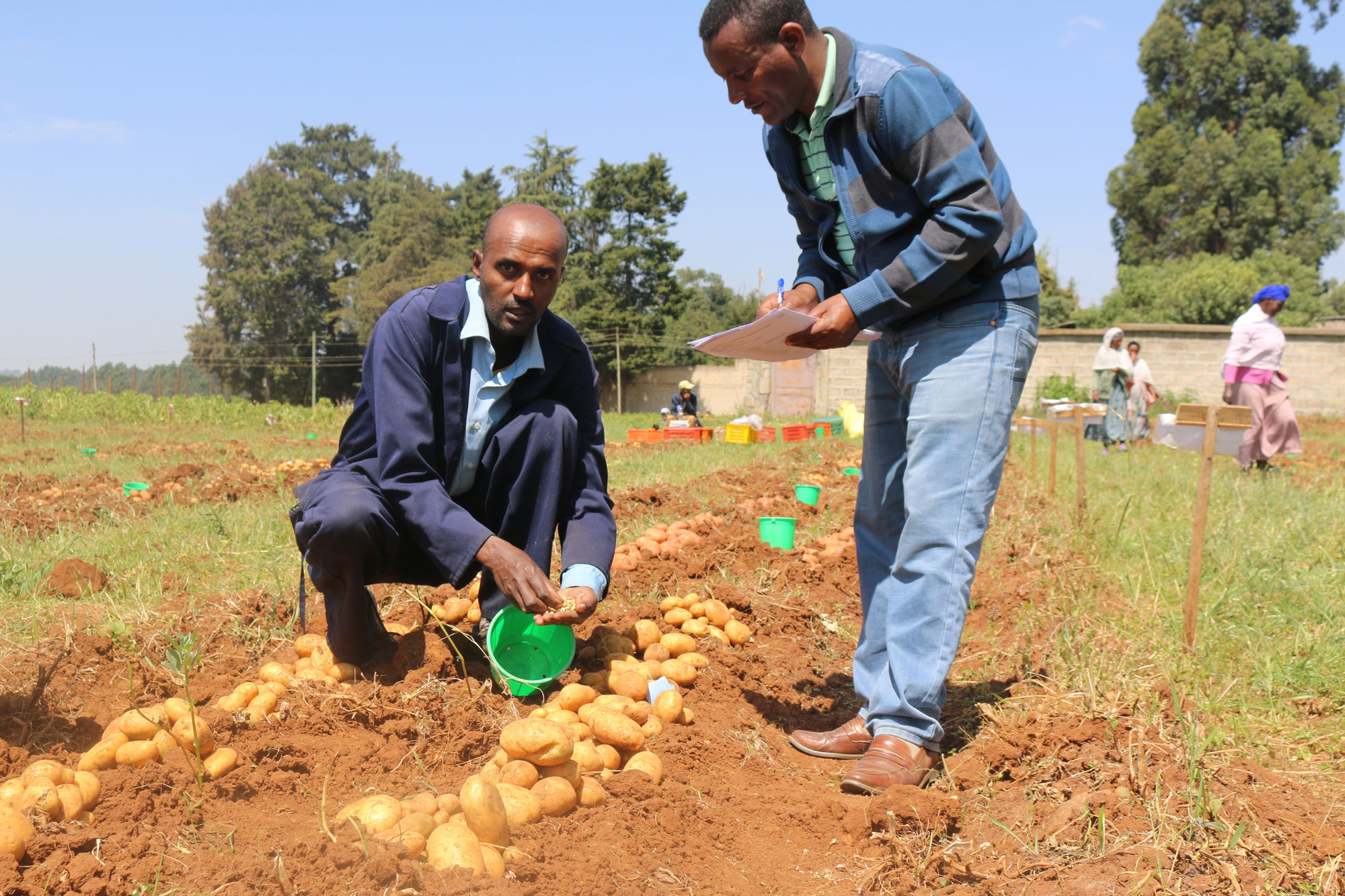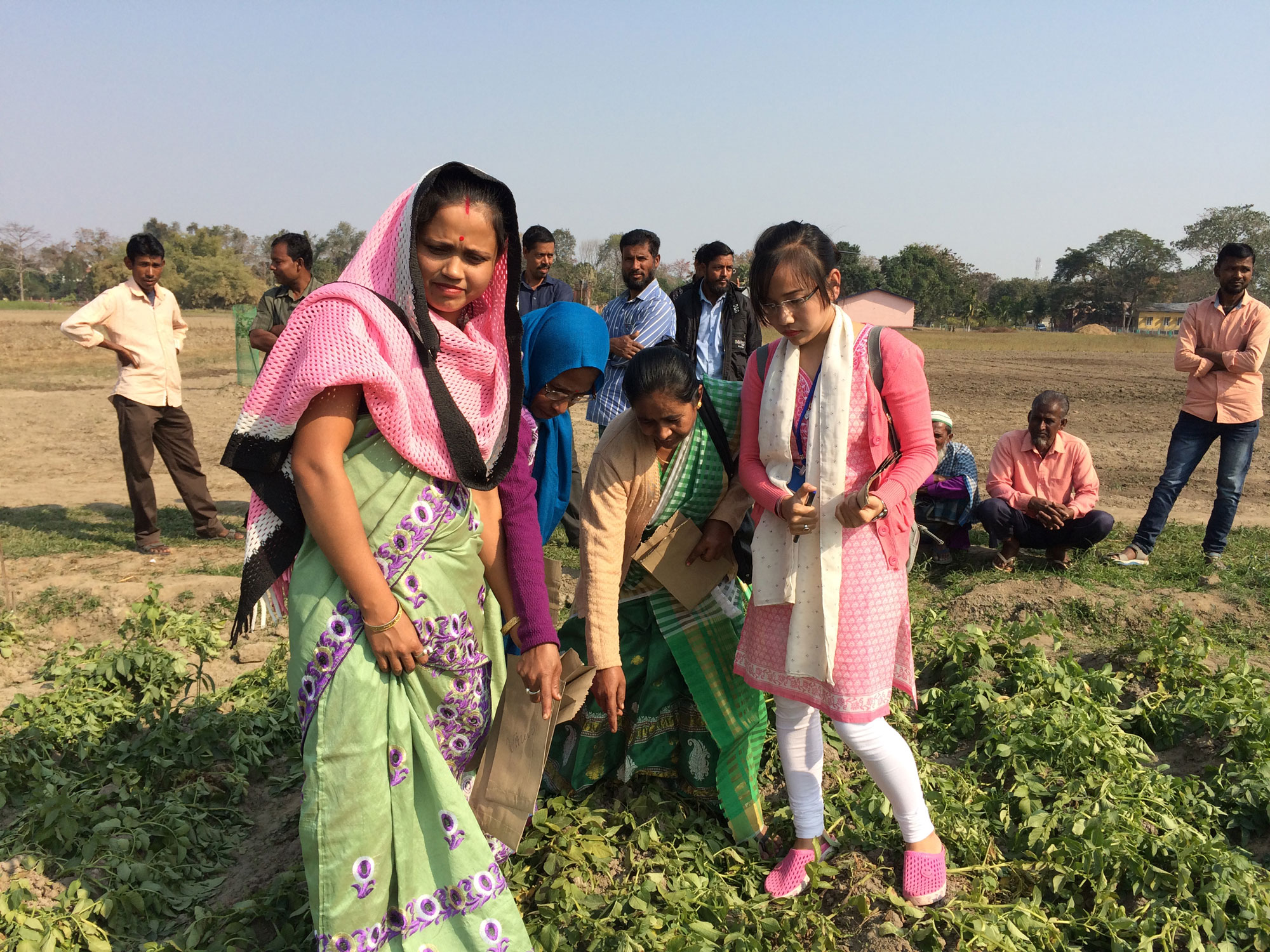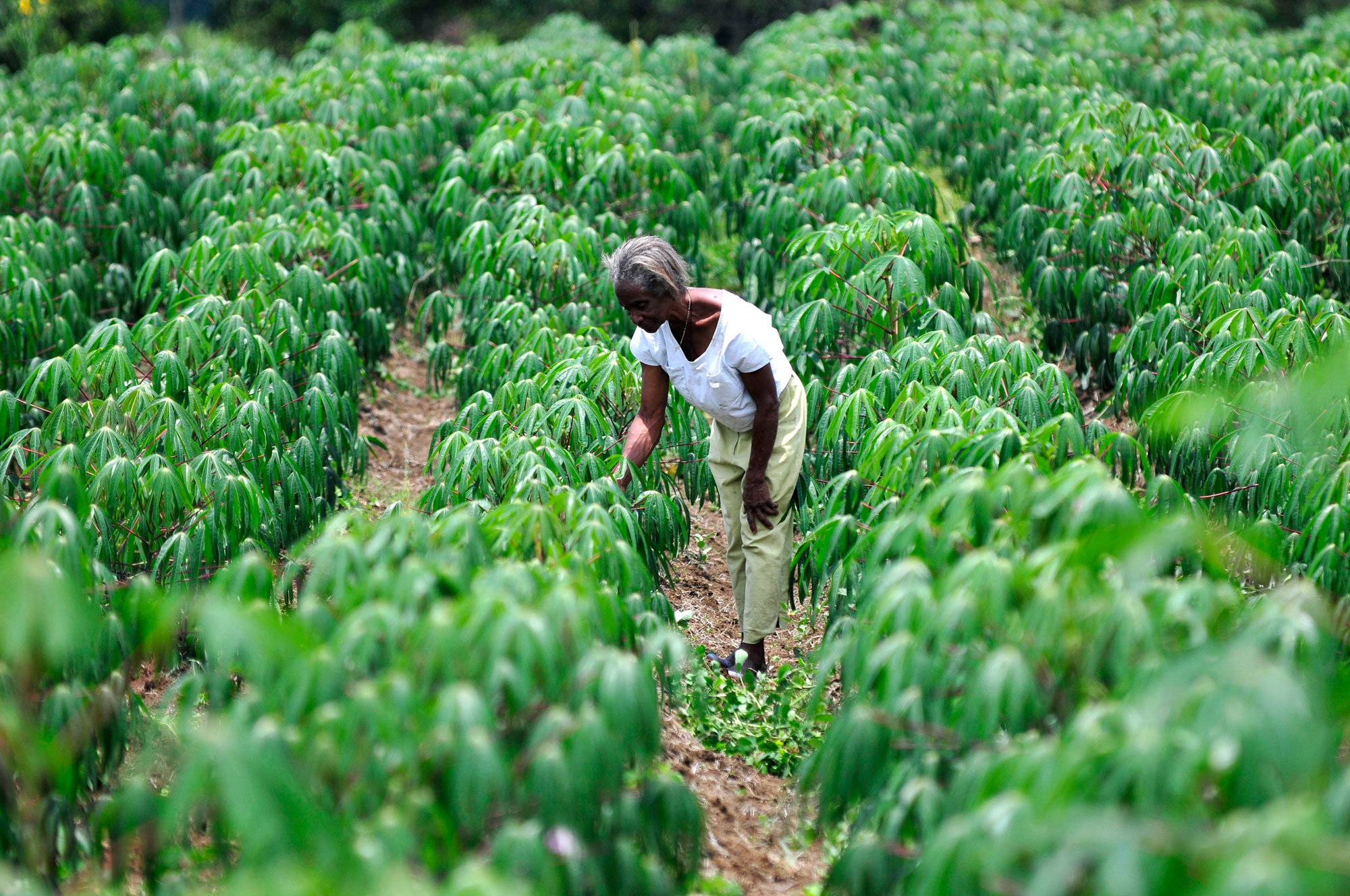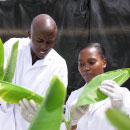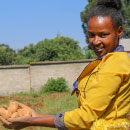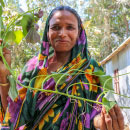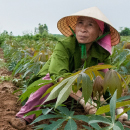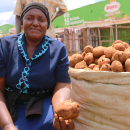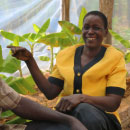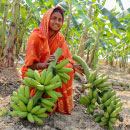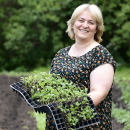Subsistence farmers may be reluctant to try new varieties because the risks are high.
Participatory varietal selection (PVS) allows plant breeders and others to work in collaboration with men and women farmers to identify the traits and varieties that they prefer. In a community, PVS increases farmers’ exposure to new varieties and gives farmers from around the area the chance to see how well the new varieties may grow in their fields. At the same time, PVS helps to spread information about new varieties through social networks. Such spread can be especially important for women, who may not be privy to this information through the normal pathways, such as extension agents or agro-dealers. RTB’s research has helped to create new tools and methods that formalize gender-responsive approaches to participatory varietal selection

